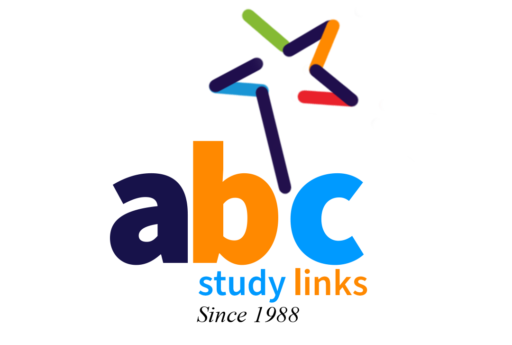
Fall Intake in Canada 2025: Deadlines, Timeline, & Essential Tips
As the academic year unfolds and prospective students gear up for their educational journey, the allure of studying in Canada continues to grow. Renowned for its world-class universities, vibrant multiculturalism, and stunning landscapes, Canada stands as a beacon of academic excellence. For those planning to embark on their educational adventure in 2025, navigating the fall intake process is crucial. Here’s a comprehensive guide to help you through every step:
Understanding the Fall Intakes in Canada
The fall intake, starting typically in September, is one of the most popular periods for international students to commence their studies in Canada. It aligns with the academic calendar of Canadian universities, offering a wide array of programs across various disciplines.
Popular Fall Intakes in Canada
Canada offers three primary intake periods for international students: Fall intake, Winter intake, and Summer intake. Among these, the Fall intake, starting in September, attracts the highest number of applicants from around the globe. In this article, we provide insights into the Canadian colleges open for the September 2025 intake, also known as the Fall intake, highlighting its unique advantages.
- If you need assistance navigating the application process or require guidance on choosing the right Canadian college, consider reaching out to a study abroad consultant in Kerala specializing in Canadian universities. They can provide valuable insights and support tailored to your educational goals and preferences.

Benefits of Fall Intake in Canada
- Availability of Top-Ranking Universities: All prestigious universities in Canada admit students during the Fall intake, offering a wide range of academic programs.
- Comprehensive Course Availability: Almost all courses across various disciplines are available for enrollment during the Fall intake, providing students with ample choices to align with their academic interests.
- Increased Scholarship Opportunities: Many scholarships and financial aids are specifically earmarked for students entering Canada during the September intake, making it an advantageous period for funding opportunities.
| Fall Intakes in Canada | Duration | Popularity |
| Fall Intake in Canada (Primary Intake) | September/October – February | The Fall intake is the most sought-after period for admission to Canadian universities. Starting in September, it offers a vast array of courses and degree programs for prospective students. |
| Winter Intake in Canada (Secondary Intake) | January – April/May | The Winter intake serves students who missed the Fall intake deadline, providing another opportunity to begin studies in January. |
| Spring/Summer Intake in Canada | May – August | The Spring/Summer intake allows for a limited selection of courses and colleges, catering to students seeking alternative start dates outside the traditional Fall and Winter terms. |
Steps in the Application Process of Fall Intakes in Canada
- Application Deadlines: Universities in Canada have varying deadlines for fall intake applications. It is advisable to start researching early to ensure you meet each university’s specific deadlines, which can range from as early as November the previous year to as late as March or April.
- Visa and Permit Deadlines: After receiving your acceptance letter, applying for a study permit and visa is essential. This process may take several weeks to months, so plan accordingly to avoid any last-minute delays.
- Scholarship Deadlines: Many universities and organizations in Canada offer scholarships for international students. Be sure to check the deadlines for scholarship applications, which often coincide with or are slightly earlier than admission deadlines
Steps in the Application Process
- Research Universities and Programs: Begin by researching universities and programs that align with your academic and career goals. Consider factors such as curriculum, faculty expertise, research opportunities, and campus life.
- Prepare Application Materials: Gather all necessary documents, including academic transcripts, letters of recommendation, standardized test scores (like TOEFL or IELTS), and a statement of purpose.
- Submit Applications: Complete and submit your applications through the universities’ online portals. Double-check all requirements and deadlines to ensure everything is in order.
- Await Admission Decisions: After submitting your applications, patiently await admission decisions. Universities typically notify applicants of their admission status a few months after the application deadline.
Financing Your Education
Top Courses for Canadian Universities (Fall intake in Canada 2025)
Discover the most popular programs for Fall intake 2025 in Canada (see table below).
| Top Courses for September Intake in Canada | ||
| Medicine | Political Science | Physics |
| Microbiology and Immunology | Nursing | Public Health |
| Mathematical and Statistical Sciences | Law | Renewable Resources, Agriculture, Life and Environmental Sciences |
| Engineering (Civil, Mechanical, Chemical, etc.) | Education | Computer Science |
| Business (MBA, BBA, etc.) | Chemistry | Communications and Technology |
| Biotechnology | Art and Design | Environmental Studies |
| Food Science and Technology Specialization | Mathematics | Petroleum Engineering |
If you are looking diploma courses you checkout this blog : 12 best diploma courses for a high paying career
The admission procedure for September intake in Canada varies based on your academic level, specific course prerequisites, and the university you are applying to. Below are the essential eligibility criteria:
- Formal Schooling: Applicants must have completed formal schooling with a minimum specified percentage to qualify for admission to the Fall intake in Canada. Typically, a minimum of 70% is required.
- Bachelor’s Degree: For those applying to master’s degree or PG diploma programs, a bachelor’s degree with a specified GPA (usually 3.0 out of 4.0) is required.
- Standardized Exam Scores: Depending on the program, applicants may need to submit scores from standardized exams such as SAT, ACT, GRE, GMAT, etc.
- English Language Proficiency: Applicants from non-English speaking countries are required to demonstrate their English language proficiency by submitting scores from tests such as IELTS, TOEFL, PTE, DTE, etc.
Masters Programs for Fall Intake 2025
| Field of Study | Courses |
| Computer Science and Engineering | Artificial Intelligence, Machine Learning, Cybersecurity, Software Engineering |
| Business Administration and Management | Finance, Marketing, International Business, Entrepreneurship |
| Health Sciences | Nursing, Public Health, Healthcare Management, Biomedical Sciences |
| Environmental Science and Sustainability | Environmental Engineering, Ecology, Sustainable Development |
| Data Science and Analytics | Data Analytics, Business Analytics, Data-driven Decision Making |
| Art and Design | Fine Arts, Graphic Design, Digital Media, Animation |
| Social Sciences and Humanities | Psychology, Sociology, Political Science, Anthropology |
| Engineering (Various Disciplines) | Civil Engineering, Mechanical Engineering, Electrical Engineering, Chemical Engineering |
| Education | Teaching, Educational Leadership, Special Education |
| Law and Legal Studies | Law, Criminology, Legal Studies |
Eligibility Criteria for Masters
| Discipline | Top Courses for Fall Intake in Canada 2025 | Basic Eligibility Requirements |
| Medicine | Master of Public Health, Master of Nursing (MN), Master of Health Administration (MHA), Master of Clinical Psychology | Bachelor’s degree in a related field, GRE (if required), Relevant work experience (for some programs) |
| Political Science | Master of Public Policy (MPP), Master of International Relations (MIR), Master of Political Science (MPS) | Bachelor’s degree in Political Science or related field, Proficiency in English |
| Physics | Master of Physics, Master of Applied Science (Physics), Master of Science (Physics) | Bachelor’s degree in Physics or related field, Proficiency in Mathematics |
| Computer Science | Master of Computer Science (MCS), Master of Science in Computer Science (MSCS), Master of Data Science | Bachelor’s degree in Computer Science or related field, Proficiency in Programming Languages |
| Business | Master of Business Administration (MBA), Master of Management (MM), Master of Finance (MFin) | Bachelor’s degree in Business Administration or related field, Work Experience (for MBA programs) |
| Engineering | Master of Engineering (MEng), Master of Science in Engineering (MScEng), Master of Applied Science (Engineering) | Bachelor’s degree in Engineering or related field, Proficiency in Mathematics and Physics |
| Education | Master of Education (MEd), Master of Arts in Education (MAEd), Master of Science in Education | Bachelor’s degree in Education or related field, Teaching Certification (for teaching programs) |
| Environmental Studies | Master of Environmental Science, Master of Environmental Engineering, Master of Sustainable Development | Bachelor’s degree in Environmental Science or related field, Proficiency in Science |
| Law | Master of Laws (LLM), Master of Jurisprudence (MJur), Master of Legal Studies | Bachelor’s degree in any field, Proficiency in English, Relevant work experience (for some programs) |
| Art and Design | Master of Fine Arts (MFA), Master of Design (MDes), Master of Arts (MA) in Art and Design | Portfolio (showcasing artistic work), Bachelor’s degree in Art or Design |
| Biotechnology | Master of Biotechnology, Master of Science (Biotechnology), Master of Applied Science (Biotechnology) | Bachelor’s degree in Biotechnology, Biology, or related field, Proficiency in Life Sciences |
| Mathematics and Statistics | Master of Mathematics, Master of Statistics, Master of Science (Mathematics and Statistics) | Bachelor’s degree in Mathematics or Statistics, Proficiency in Mathematics |
| Health Sciences | Master of Public Health (MPH), Master of Pharmacy (MPharm), Master of Physiotherapy (MPT) | Bachelor’s degree in Health Sciences or related field, Licensure or Certification (where applicable) |
| Communications and Media | Master of Communication (MCom), Master of Media Studies, Master of Journalism | Bachelor’s degree in Communications or Media Studies, Proficiency in Communication |
| Social Sciences | Master of Social Work (MSW), Master of Sociology, Master of Psychology | Bachelor’s degree in Social Sciences or related field, Proficiency in Social Sciences |
| Hospitality and Tourism | Master of Hospitality Management (MHM), Master of Tourism Management, Master of Event Management | Bachelor’s degree in Hospitality Management or related field, Proficiency in Hospitality Industry |
| Agriculture and Food Science | Master of Agriculture, Master of Food Science, Master of Agribusiness Management | Bachelor’s degree in Agriculture or Food Science, Proficiency in Agricultural Sciences |
| Pharmacy | Master of Pharmacy (MPharm), Master of Science in Pharmacy (MScPharm), Master of Pharmaceutical Sciences | Completion of pre-pharmacy coursework, Admission to PharmD program |
Top-Ranked Canadian Universities with Fall 2025 Intake -
According to QS World University Ranking 2024
| University Name | QS World University Ranking 2024 |
| University of Toronto | 25 |
| McGill University | 27 |
| University of British Columbia | 49 |
| University of Alberta | 113 |
| McMaster University | 140 |
| University of Waterloo | 151-200 |
| Western University | 201-250 |
| Queen’s University | 251-300 |
| University of Calgary | 251-300 |
| Simon Fraser University | 301-350 |
Preparing for Life in Canada
Moving to a new country involves more than just academic preparation. Familiarize yourself with Canadian culture, healthcare system, accommodation options, and local transportation. Reach out to current students or alumni for insights and advice on settling into Canadian life.
Final Thoughts
On a journey to study in Canada offers not only academic enrichment but also a chance to immerse yourself in a diverse and welcoming community. By staying organized, proactive, and informed throughout the application process, you can maximize your chances of securing admission to your desired university for the fall intake in Canada 2025.
Whether you’re drawn to the bustling urban campuses of Toronto and Vancouver or the serene landscapes of Halifax and Edmonton, Canada promises a fulfilling educational experience that extends far beyond the classroom. Begin your preparations early, stay focused on your goals, and embrace the adventure that awaits in the Great White North. Happy studying!
